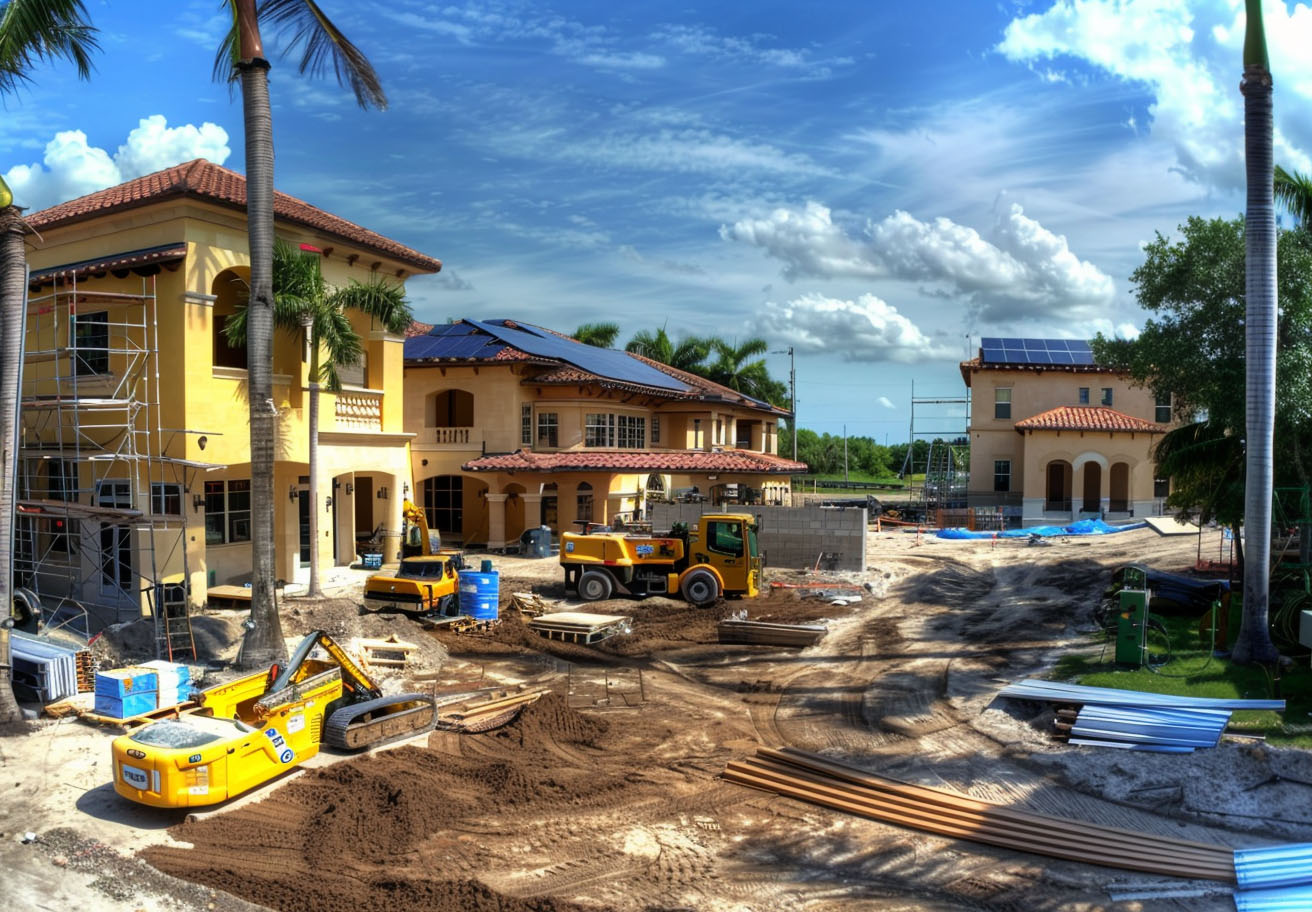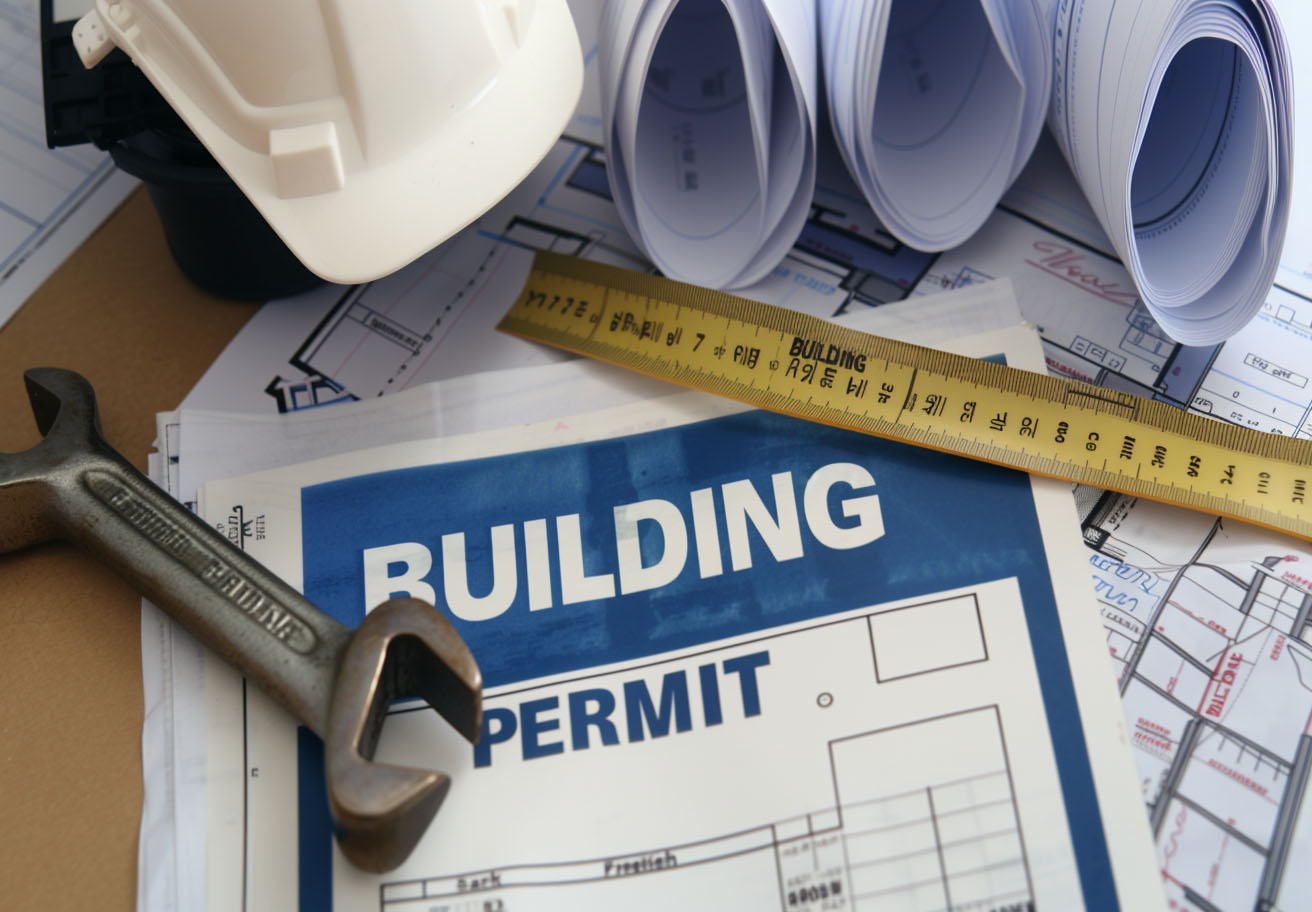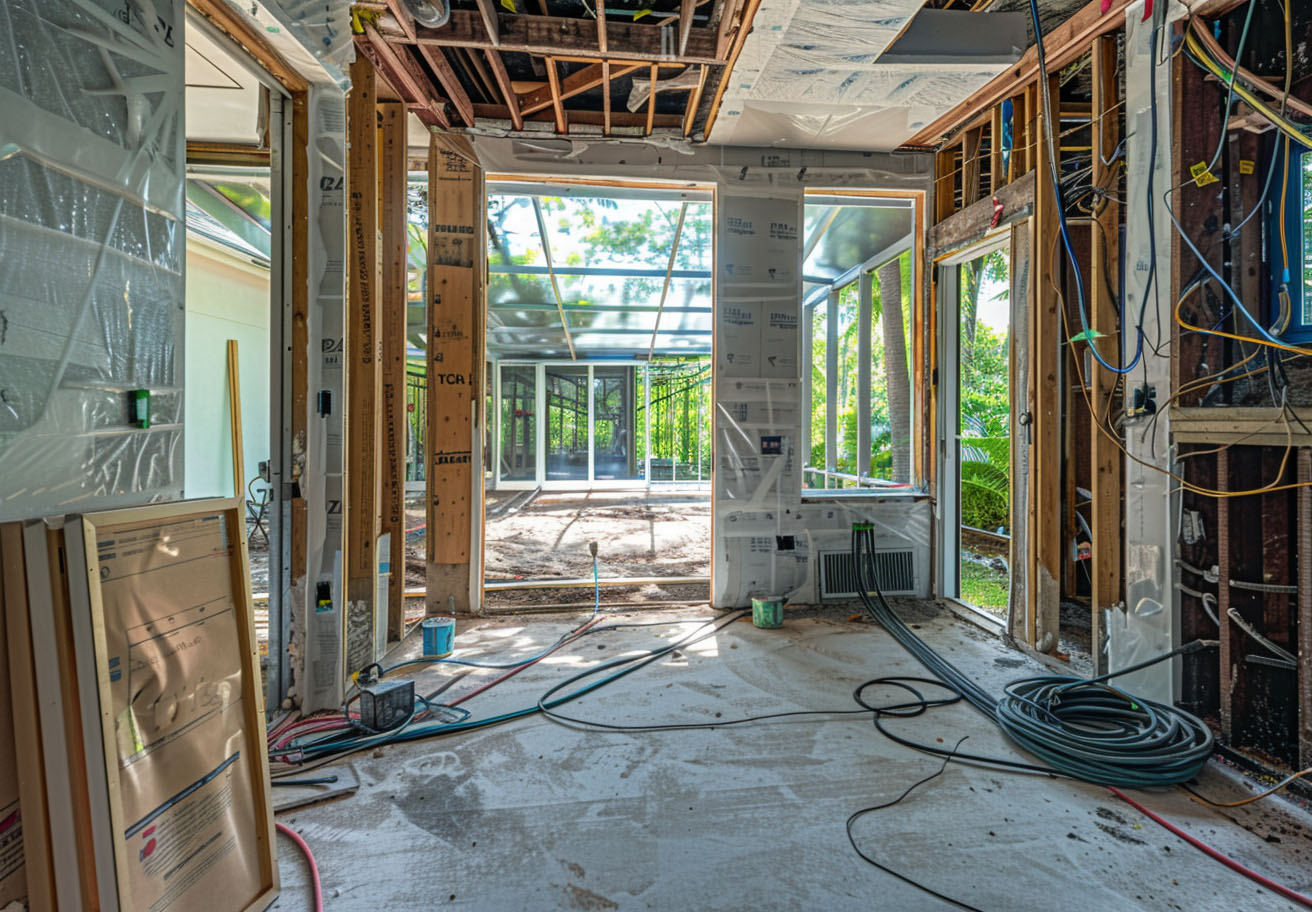

Understanding when you need a permit for construction or renovation projects in Florida is essential for complying with the Florida Building Code (FBC). Permits ensure that all work meets safety and regulatory standards, protecting both the property owner and the community. This blog will cover the situations that require a permit, those that don’t, and introduce Dago Design Studio, a firm specializing in navigating these requirements.
Required Building Permits
Applications for building permits are required for various installations and modifications as regulated by Section 105.1 of the Florida Building Code. Here are some common scenarios where a permit is necessary:
Construction and Enlargement
Any project that involves constructing a new building or enlarging an existing structure requires a permit. This includes additions to your home or commercial property.
Alterations and Repairs
Significant alterations or repairs, such as structural changes or major renovations, also necessitate a permit. This ensures that the work adheres to current safety standards.
Moving or Demolishing Structures
If you plan to move or demolish a building, you must obtain the appropriate permits to ensure the process is conducted safely and legally.
System Installations and Modifications
Electrical, Gas, Mechanical, and Plumbing Systems
Any work involving the installation, alteration, repair, removal, conversion, or replacement of these systems must be permitted. This includes adding new systems or modifying existing ones.
Specific Installations Requiring Permits
- Yard Fences and Pool Barrier Fences: Ensures compliance with safety standards.
- Screen Enclosures and Screened Patios/Porches: Requires a permit to ensure proper construction.
- Accordion Shutters: Installation must meet safety regulations.
- Stand-by (Permanent) Generators: Permits are necessary for safety and compliance.
- Rooftop Solar Panels: Requires permits to ensure proper installation and integration with the building.
- Pools and Spas: Construction and installation need permits to meet health and safety standards.
- Gas Line Additions: Adding a gas line for outdoor grills or pool heaters requires a permit for safety reasons.
Permit Exemptions
While many construction projects require permits, some improvements are exempt, provided they comply with minimum code standards:
Exempted Projects
- Air Conditioning Repairs: Repairs that do not involve structural changes.
- Window Unit Replacement: Replacing an air conditioning window unit with existing electrical.
- Carpet Installation: Installing carpet in any room.
- Ceiling Fan Replacement: Using the existing outlet box and wiring.
- Interior Door Replacement: For any residential door within the individual unit.
- Gutters and Leaders: Installing gutters and downspouts.
- Heating Unit Repairs: Simple repairs not involving major modifications.
- Floor/Wall Ceramic Tile Installation: Installing ceramic tiles.
- Painting/Wallpaper: Interior or exterior painting and wallpaper installation.
- Plumbing Fixture Replacement: Replacing fixtures like sinks or toilets.
- Minor Roof Repairs: Repairs to existing roofs covering less than 200 square feet.
- Residential Appliance Replacement: Replacing appliances without altering structural or electrical systems.
- Small Drywall Repairs: Repairs not exceeding two sheets of drywall.
- Playground Equipment: Installing residential playground equipment.
- Countertops and Sinks: Replacing existing countertops and sinks in the same location.
- Window Repair: Basic repairs to existing windows.
- Drywall Installation in Garages: In detached garages without habitable space.
Consulting with Experts

Why Consult with Dago Design Studio?
Navigating the permit requirements of the Florida Building Code can be challenging. Dago Design Studio specializes in ensuring your construction projects comply with all necessary regulations. They provide expert guidance from project planning through to completion, helping you avoid costly delays and penalties.
Steps to Take Before Starting Your Project
Verify Permit Requirements
Always check with your local building department to verify if a permit is required for your project. This step can save you time and prevent legal issues.
Prepare Documentation
Gather all necessary documentation, including detailed plans and specifications, when applying for a permit.
Schedule Inspections
Arrange for inspections as required by the Florida Building Code to ensure compliance throughout the construction process.
Conclusion
Understanding the permit requirements for construction projects in Florida is crucial for ensuring compliance with the Florida Building Code. Whether you’re constructing a new building, making alterations, or installing new systems, obtaining the necessary permits ensures that your project meets all safety and regulatory standards. Dago Design Studio can help guide you through this process, providing expertise and support every step of the way.




